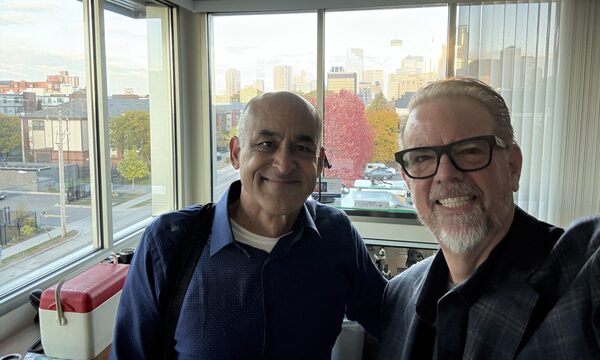The title of this post may seem silly. Reading is just the activity of decoding words and sentences as your eyes move down a page. As the shoe company ads have told us, we should "Just Do It." Some people do, and, as with bodily exercise, many people have trouble just reading the Bible in a regular way. My Bible reading habit (like my exercise habit) has been stronger at some times than others. Life conditions are not constant. Habits of all sorts can be renewed, strengthened, prioritized, and lost through neglect or disinterest. I’ve been reading the Bible regularly for thirty years, so I have three suggestions to offer about how to overcome the inertia of not doing so and get back to moving with the biblical text in a daily way.
1. Read across the variety in the Bible
You can read the Bible regularly by pulling from the variety of literature in it. Most people recognize that the many pages of the Bible are different sorts of writing: stories, laws, poetic wisdom and prayer, prophecies of doom and hope and letters with practical instructions for living. If I am resolved to read the Bible every day, this is a difficult habit if I am set amidst Leviticus and Numbers for weeks in a row. Some reading plans I’ve seen can help overcome the monotony of getting stuck in Old Testament legal codes by combining a New Testament selection with an Old Testament selection. I suggest a variation of that, as introduced to me by my dad.
No matter what time of year or how much time you want to spend reading the Bible daily, you can follow a pattern that will expose you to the rich variety of the Bible each day you read. This approach is similar to the variety we desire in eating food, and in doing exercise. It’s not good for the body or the soul to spend seven days in a row eating only vegetables, and then move on to eating only meat, to be followed by only ice cream, and then only pasta or bread. Most people enjoy daily meals that include several different items together, as with some sort of grain, a protein and vegetables, and perhaps followed by a fruit or other dessert.
With the Bible, five bookmarks can keep us in the variety by reading a chapter each from these portions:
- Pentateuch (Genesis-Deuteronomy)
- History (Joshua-Esther)
- Poetry & Prophets (Job-Malachi)
- Gospels & Acts
- Epistles & Revelation
Every day will have an assortment of God’s different words to us. Since the New Testament is shorter, a regular practice will get more repetition of the Gospels and Epistles compared to the Old Testament. Each day gives a sense of progress that I’m moving through the Bible in bites of fifteen minutes or less.
The simplicity of this strategy is that no calendar is needed, and there is no keeping up with a plan. If you want to spend more time than a single chapter in any portion, doing so doesn’t scramble the prescribed plan. It’s been amazing to me when on some days the different portions of Scripture expressed similar themes, like eating a meal that follows a common theme for all the components. Reading the variety of five portions of the Bible each day helps us to experience the unity of God’s revelation to us.
Most important, reading regularly and widely throughout the Bible helps to make sense of all the parts together. The Gospels and Epistles are the most appealing writings for Christians; we will understand them so much better when we are familiar with the underlying material in the Old Testament. Reading the variety simultaneously keeps us in the New Testament material while engaging the Old Testament material that illuminates the Gospels and Epistles. Like food, some Old Testament and New Testament pairings (like food pairings of meat and potatoes, or coffee and a pastry) are especially beneficial, such as Exodus and Matthew, or Daniel and Revelation.
Different portions of the Bible speak together about recurring themes, so Christians need to specialize in reading all of it to understand any of it deeply. God has some difficult things to tell us. Some portions are like broccoli and thick steak, but we don’t have to get stuck there if we keep our reading in several portions simultaneously to progress through the whole. Among the many human authors, topics and historical conditions of the biblical books, we encounter one God who has authored all things in life and his book for us.
2. Ask God for Motivation to Read
I hear students chastise themselves for not doing enough in relationship with God. They struggle to make the time and generate interest for reading the Bible and praying. We are not alone in any of our activities and aspirations in life. Our Father in Heaven provides for us everything we need when we ask (and often when we don’t ask!), including providing his children with desires to read the Bible. It’s not my responsibility alone to remind myself and push myself along in doing the things my Father wants me to do. Our lives are God’s accomplishment, not our own (Eph 2:10). He is not distant, but near, living within our body and constantly influencing the Christian for the life of Jesus. If we struggle with lack of interest in reading the Bible, then we may ask our Father in Heaven:
“Give me desire to read the Bible every day.”
“Remind me to listen to your word as a habit.”
“Show me where I have room in the day to spend time reading the Bible.”
“Help me to be interested in the stuff you have caused to be written.”
Like brushing our teeth (and flossing!), all people need daily sleep, food, water, exercise, work and social interaction. We can go without some of these for a while, but the results are not good. Similarly, we need God’s word and do best in daily life when we experience involvement with our Father in Heaven. Prayer, reading the Bible, meditation on God’s word and works and responding to his guidance by the Spirit are all beneficial ways of experiencing his constant involvement with us. Most habits I know of are easiest to maintain when they are done daily; reading the Bible regularly is easiest if done daily also. God responds to prayer asking for motivation for daily reading of the Bible.
3. Talk to God about What You See in the Bible
Thinking and reading are work; we are often tired and desire to avoid the work that reading the Bible requires. Looking at images on our phones and other screens is tempting as an easier way to pass time and recover from the troubles of our lives. Reading the Bible seems more of a strain than watching video or scrolling through a blog post (!), and reading can seem less relational than praying or listening to music. Talking to God about what we see in the Bible can be a help for encountering our Father.
I sometimes forget to talk to God about what I am reading in the Bible. When I actually open my thinking into talking to him, the Bible reading task becomes relational encounter. Often my talk is just putting questions to him about things I don’t understand and things that seem strange. Sometimes I see things in the Bible that stand out as addressed to me right now. Telling my Father my thanks for these things enhances my daily reading. He frequently provides reassurance, guidance, and motivation as related to my daily life when I read the Bible daily.
We have not been created to operate in life as individuals. God designed us to grow up in families, collaborate with others in societies and as a church, and to speak and act from him as our source and ground of being. That we would depend upon him completely is his goal of creating and saving us. Only through our dependence upon him can we glorify and enjoy him forever. This dependence extends to all that we do, so we may pull from him the help we need to read the Bible daily.
 Biola University
Biola University




